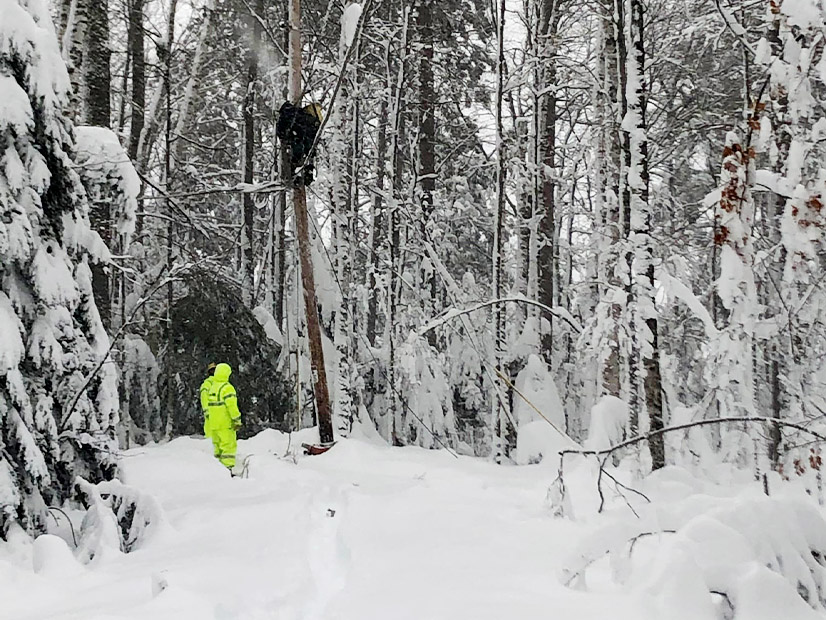With winter largely behind it, MISO staff last week told stakeholders that winter fuel security surveys will become an annual fixture.
The RTO rolled out the weekly surveys to its fossil fuel generation fleet’s owners in early December, despite some members saying it was a burdensome task. At the time, MISO said it was receiving concerning reports about possible fuel scarcities ahead of the winter. The mandatory surveys ended last month. (See MISO Sounds Alarm on Potential Winter Fuel Scarcity.)
During a Reliability Subcommittee meeting Thursday, staff’s J.T. Smith said the grid operator will refine the format to make sure it’s efficient and easier to use by next winter.
“We know that this was a very ad-hoc, quick move,” Smith said of last year’s abrupt rollout. He said staff will examine whether the RTO is “asking the right questions or not.”
He admitted that not all generation owners responded to the survey after it was introduced. MISO has said some operators were “hit and miss” in filling out the weekly surveys.
“By the time we started to get decent information, it wasn’t as relevant anymore,” Smith said.
MISO said the survey results showed “healthy” fuel stockpiles this winter. It said the mild winter weather also contributed to the positive fuel management. Some operators reported slower train deliveries because of supply chain issues, labor shortages and harsh weather.
The RTO also delivered a refresher on how it positions itself for extreme weather. (See NERC Cold Weather Project Moves Forward.)
MISO’s Trevor Hines said each extreme weather event is different and the RTO prepares differently across heatwaves, arctic blasts, hurricanes or tornadoes.
He said the bulk of preparations rely on members’ most up-to-date offer data available. “We’re only as good as the information provided to us,” Hines said.
He said staff considers an extreme weather event’s unique risk before committing generation in advance. Hines said control room operators will monitor storm paths to anticipate what resources could become unavailable and will order early start times if it becomes too cold for generators to start up normally. MISO often dispatches additional units to account for forced outage risk, he said.
MISO is considering using extreme weather historical data to influence its decision-making, Hines said. He said going forward, staff might use past load data and generation- and transmission-failure data to predict response during unfolding events.
The RTO will also remove the “other” option when generation owners input data into the outage scheduler.
Senior engineer David Schoon said MISO suspects the generic option is overused as a cause code in the outage tickets that market participants submit for outages. In its place, staff will add several new outage explanation selections.
Staff said it’s important they understand why generation outages are occurring. MISO said it hasn’t meaningfully updated its outage-cause codes since 2014.
Some stakeholders said it isn’t immediately clear what causes generation to trip. They added that MISO’s outage ticket system is rigid and doesn’t allow members to retroactively modify their entries.
Staff said they would investigate why members can’t seem to edit outage notices.




